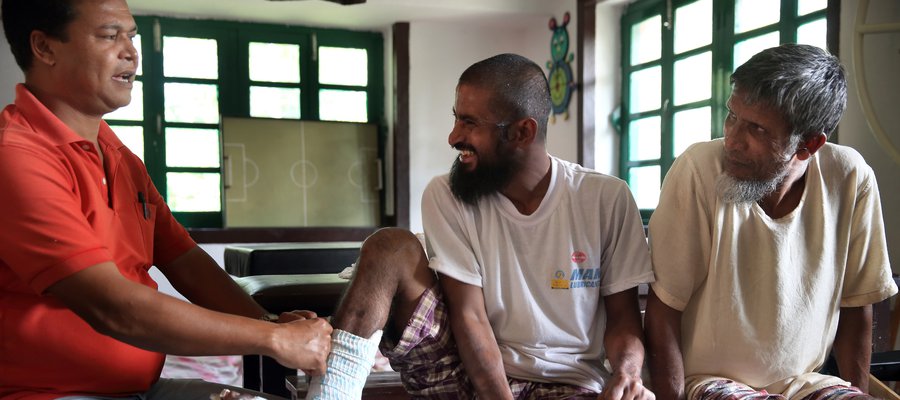Advocacy Opinion: The UN must be at the centre of development work that includes everyone

By Pradeep Bagival
Globally there are more than a billion people with disabilities and even then, there are those ‘missing millions’ who are not counted as they are not aware of their status as persons with disabilities.
We’ve already come a long way in inclusive development work
The Sustainable Development Goals (SDGs) are a blueprint for creating a better world. They were developed in 2015 by countries who are Members of the UN and include 17 key goals from everything including climate change, global peace, poverty, and much more.
Before we had the SDGs, we had the Millennium Development Goals. Sadly, these goals were far from inclusive and, as they attempted to provide a blueprint for a better world, they left out far too many people, including people with disabilities.
Thankfully, the SDGs are a massive improvement, and for that we can be thankful. However, although the SDGs promise inclusive development, we need to work hard to ensure those aren’t empty promises. We must ensure that the human rights of people with disabilities are respected within the SDGs
Including people with disabilities in any plans to support them
The UN’s work to promote disability inclusion needs to ultimately result in disability-inclusive policies and programmes in those countries that are being supported by UN Country Teams (UNCTs). These policies and programmes need to lead to an improvement in the quality of life for people with disabilities, 80% of whom live in poor countries across Asia and Africa, particularly in rural communities.
People with disabilities must be included in the development of these policies and programmes if they are to be at all successful. It is not currently known how many of the 134 UNCTs are actually engaging with persons with disabilities and their respective organisations, nor is it known how many of the 164 global programmes are actually disability-inclusive. The first step to avoiding empty promises on the human rights of people with disabilities is to find out how much they are being included in these processes.
The disability-inclusion work has a lot to learn from the excellent gender-inclusion work
The UN has done some excellent work on gender in recent years, ensuring that UN staff are trained on issues of gender. If we are to ensure that the rights of people with disabilities are protected through the SDGs, training of UN staff and the staff of national governments would make an enormous difference.
As well as this gender-inclusion work, the UN has also developed a Gender Equity Seal to incentivise country offices to include gender equality in all aspects of their development work. Upon completion of a range of specific standards, the country offices can seek Gold, Silver, or Bronze levels of certification. A Disability Seal would certainly prove to be an incentive for the UN agencies to promote disability inclusion in their development work.
Protecting rights are the national level is crucial
There are currently 180 countries who have ratified the UNCRPD, which outlines the rights of people with disabilities. Although these countries have ratified the CRPD, very few countries have their own disability legislation in place that protects the rights of people with disabilities. The UN is uniquely well placed to encourage countries to priorities the rights and needs of their disabled citizens. Through the UN’s support on this issue, there could be a dramatic change in how well people with disabilities are protected by the laws of their land.
We’ve come a long way and I believe we are going to go a lot further
The suggestions outlined above are just a start, but should they be taken forward, we will be making important steps to ensure that our promises about disability-inclusion are not empty. We will be on our way to creating a better world for everyone, one that protects and honours the rights of people with disabilities.